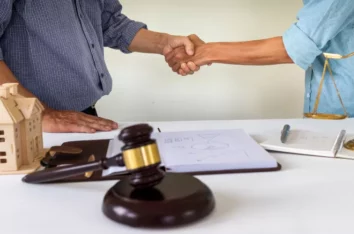- The short answer to the question above is: No, not without a court order.
- Section 8(1) of the Prevention of Illegal Eviction from and Unlawful Occupation of Land Act 19 of 1998 (“PIE”) specifically states that no person may evict an unlawful occupier except on the authority of an order of a competent court.
- A landlord has to follow the procedure prescribed in Section 4 to Section 6 of the PIE Act in order to lawfully evict a defaulting tenant (It is important to note that the PIE Act only applies to residential tenants).
- Furthermore, the conduct of the landlord in these circumstances will amount to an offence in terms of Section 16 of the Rental Housing Act 50 of 1999(“the Act”) and in terms of Section 8(3) of the PIE Act.
- A landlord who locks out a tenant from the premises will be liable on conviction to a fine or imprisonment not exceeding two years or to both such fine and such imprisonment in terms of the Act.
Is it possible to agree to an eviction without a court order in a lease agreement?:
- Section 26(3) of the Constitution states that “no one may be evicted from their home, or have their home demolished, without an order of court made after considering all the relevant circumstances. No legislation may permit arbitrary evictions”.
- It is thus not possible to agree to a situation that will allow the landlord to lock out the tenant without an order of court. Any such clause in a lease agreement will consequently be unenforceable.
What are the consequences if a landlord locks out a residential tenant?
- As soon as a landlord decides to take the law into his/her own hands and to lock out a tenant, the tenant will be in a position to obtain a spoliation order against the landlord.
- The only thing that the tenant will need to prove is the following:
- He/she was in peaceful and undisturbed possession of the
premises;
- He/she was deprived of that possession without consent or
recourse to law.
- If the tenant is able to prove the above, the court will order the landlord to restore possession of the premises to the tenant and the landlord will most likely have to pay for the legal costs of the tenant.
- Not only will the tenant be in a position to obtain a spoliation order, but the landlord will also open himself up to a claim for damages suffered by the tenant as a result of the conduct of the landlord.
Conclusion:
- A landlord may under no circumstances decide to take the law into his/her own hands. Not only will landlords open themselves up to claims for damages, but also to cost orders against them and possible criminal charges for contravening the PIE Act and the Rental Housing Act.
________________
By: Francois Van der Westhuizen



